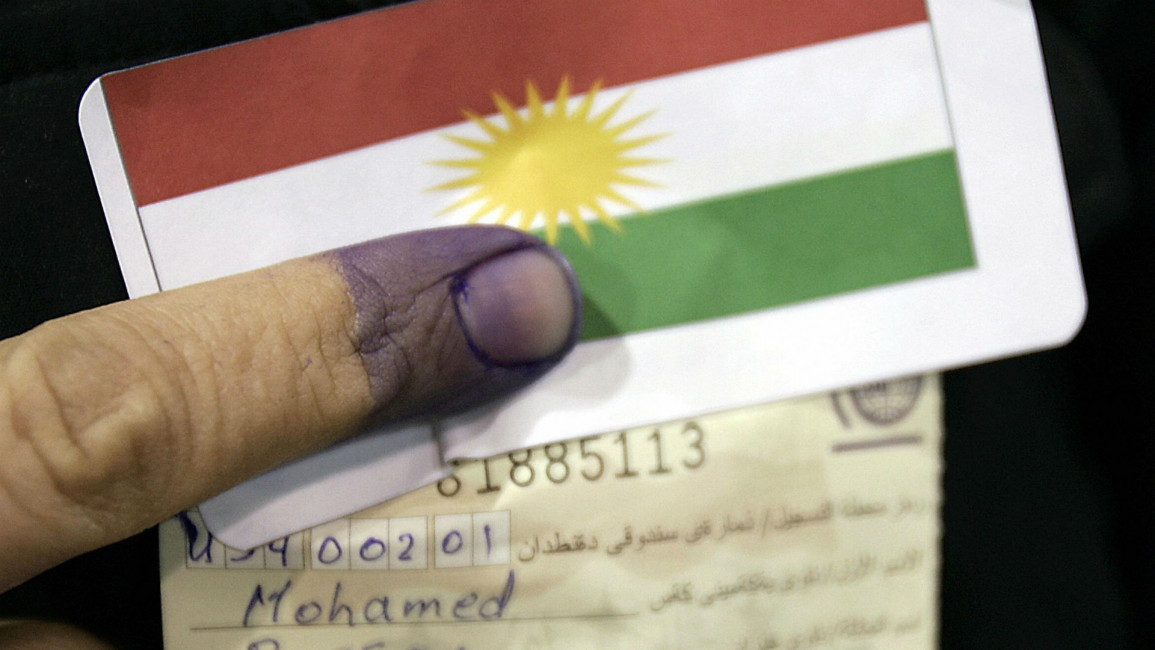Iraqi Kurds 'may postpone' independence vote in return for Baghdad concessions
Iraqi Kurds could postpone a planned independence vote next month in return for political and economic concessions from Baghdad, a senior Kurdish official said on Saturday.
Iraqi Kurdish leader Massoud Barzani and representatives of the region's political parties declared the historic referendum in June, due to take place on 25 September.
Since the announcement, both Western and regional powers have expressed opposition to the vote but Iraqi Kurdish officials have insisted the referendum will go ahead as planned.
"We don't accept to postpone the referendum with nothing in return and without fixing another time to hold it," senior Patriotic Union of Kurdistan (PUK) official Mala Bakhtiar told Reuters on Saturday.
The Kurdish official said a delegation is visiting Baghdad to hear out proposals from Iraq's central government, which hopes it can convince Erbil to postpone the vote.
Last week, a Kurdish delegation said they held a "hopeful" meeting with Iraqi Prime Minister Haider al-Abadi.
The PUK official said Baghdad must take a series of economic and political steps to persuade Kurds to postpone the vote.
Among the concessions Bakhtiar suggested the Iraqi government should make included helping the Kurdish region overcome a financial crisis and debts estimated at $10 to $12 billion, and settling territorial disputes in the oil-rich Kirkuk region.
Badghad stopped payments to the Kurdish Regional Government in 2014 after Erbul began exporting oil independently from Baghdad via a pipeline to Turkey.
Kurds say they need the extra revenue to cope with refugees and the fight against the Islamic State.
The Kurdish delegation will convey all proposals made by Baghdad to Kurdish political parties before a final decision on postponing the referendum is made, Bakhtiar said.
Turkey, Iran and Syria, which together with Iraq have sizeable Kurdish populations, all oppose an independent Kurdistan.
The Kurds have been seeking an independent state since the end of the First World War when the current borders of the region were drawn up by the UK and France.
Kurish territories are now split between modern-day Iraq, Syria, Turkey and Iran.
Agencies contributed to this report.


![President Pezeshkian has denounced Israel's attacks on Lebanon [Getty]](/sites/default/files/styles/image_684x385/public/2173482924.jpeg?h=a5f2f23a&itok=q3evVtko)



 Follow the Middle East's top stories in English at The New Arab on Google News
Follow the Middle East's top stories in English at The New Arab on Google News


